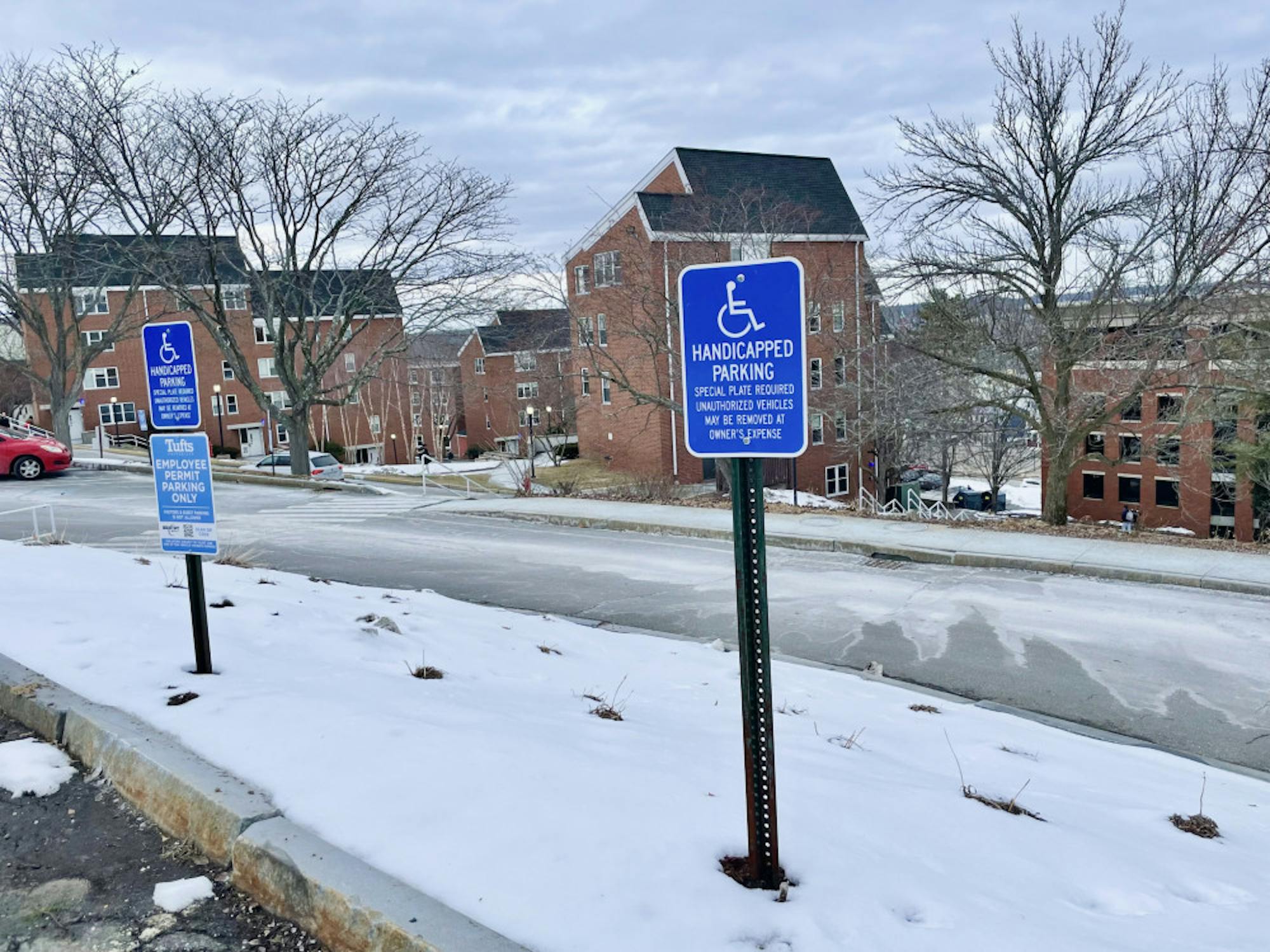As the world enters a second year of the pandemic, immunocompromised people and individuals with disabilities continue to face systemic and social detriments to their health and well-being. While many able-bodied individuals are lowering their risk potentials, people with disabilities often have little choice but to remain vigilant. This is not unfamiliar to residents of Somerville, who have expressed frustration over the difficulties that individuals with disabilities continue to experience even as the pandemic wanes.
Beth Marfeo, an associate professor of occupational therapy and community health at Tufts, noted that COVID-19 poses a larger threat to those with disabilities.
“Individuals with various health conditions or situations that may predispose them to having a disability, they’re already at a higher risk for negative health consequences.”Marfeo said. “The pandemic has just enhanced those risks.”
Immunocompromised people and those with disabilities face a higher mortality rate from COVID-19 and often encounter mistreatment in hospital settings.
Bonnie Denis, chair of the Somerville Council for Persons with Disabilities, highlighted some of the compounding risks and systemic issues faced by people with disabilities during the COVID-19 pandemic.
“I am an amputee, and I am a wheelchair user,” Denis said. “Those things make me more prone to blood clots. I'm not technically immunocompromised, but I am at greater risk in ways that people aren't thinking about. And on top of that, if I were to end up in a hospital, there has been clear bias against people with disabilities and the quality of our life, so I might not get as good treatment.”
Holly Simione, chairperson of the Massachusetts Developmental Disabilities Council and a member of the Somerville Council for Persons with Disabilities, shared her daughter Elizabeth's story and expressed her frustrations about the way health care facilities treat individuals with disabilities.
“Elizabeth was really sick, but because she didn't cry, because her pain thresholds were different, because her labs didn't fit the typical [standards], they refused to operate,” Simione said. “They sent her home, and when she did go back months later, not only did she have to have that organ removed … a one-hour [emergency] surgery became three [hours].”
Elizabeth, who was blind and deaf, passed away in May 2020 when many healthcare services were suspended because of the pandemic.
“They wouldn’t do lab tests, they wouldn’t check anything, they just stopped,”Simione said. “And if they didn’t have those [policies] in place, she wouldn’t have been in pain.”
Simione noted that crisis standards of care — metrics that hospitals use to determine the best outcomes for the majority of patients — rely on snap judgements that often disfavor people with disabilities.
“The judgements that are passed based on looking at someone … It’s inexcusable,”Simione said.
For many people with disabilities, in-home care or nursing is essential, but the risk of COVID-19 infection and the understaffing of nurses have made it more difficult for many to receive quality care.
“A lot of individuals with disabilities count on social services or supports, ... and a lot of those services were suspended for a time to help prevent the spread of COVID,”Marfeo said.
In Somerville, some outdoor dining setups have adversely affected people with mobility impairments by encroaching on sidewalks and failing to offer adequate ramps. Denis said that although the Somerville Council for Persons with Disabilities has suggested minor changes to make outdoor dining safer and more accessible, government officials have largely focused on the needs of local businesses.
“We want a thriving business community, but there seems to be a fundamental lack of understanding that complying with the [Americans with Disabilities Act] and other disability-related laws is not a choice," Denis said. "It's the law, and it's part of the cost of doing business.”
For some individuals who are immunocompromised, even simple chores are risky. Meg Grady-Troia, a Somerville resident who is immunocompromised, said they can afford to take only a few essential risks.
“I spend [my risk budget] on my child's getting to have some social time with friends and on going to the doctor, and that’s pretty much it,”Grady-Troia said. “It's been really hard to do simple things, like pick up prescriptions safely and patronize the restaurants and shops I love around town”
With Massachusetts’ easing of mask mandates, Marfeo suggested that hybrid options should remain available to be inclusive of people with varying needs.
“People need different things at different times, and being flexible with that [by] having hybrid modalities as standard can be really beneficial,”Marfeo said.
Denis expressed frustration that hybrid options are being removed, even though it's clear that many people with disabilities rely on hybrid options to remain safe.
Simione’s daughter was unable to attend school during the early days of the pandemic.
“Not being able to go to school when you have those needs is very difficult,”Simione said. “Her medical situation made it unsafe for her to be in school. Even on regular days when someone might have a cold could be very dangerous for her.”
Grady-Troia believes a stronger enforcement of mask rules would be a simple way to protect vulnerable populations.
“I wish there was some way for local businesses to enforce mask mandates that didn't put the burden on the lowest paid,” Grady-Troia said.
For now, Simione plans to keep on telling Elizabeth’s story.
“I’ll stand in front of anyone,” Simione said. “I’ll do whatever it takes to get people to understand that it didn’t have to happen, but we can make it not happen in the future.”






